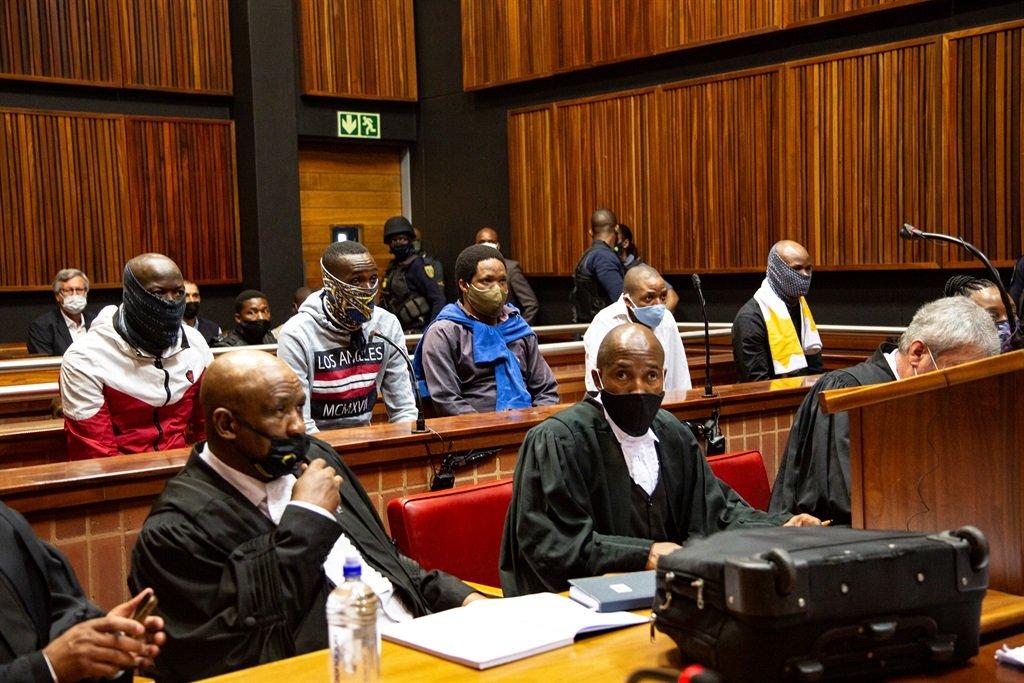Africa-Press – South-Africa. The fifth accused in the Senzo Meyiwa murder trial has asked the court for a special entry to note an irregularity after the second docket into the Bafana Bafana goalkeeper’s murder was not disclosed and, he claims, has prejudiced him.
The five men accused of murdering Meyiwa in 2014 returned to the Gauteng High Court in Pretoria on Monday, where the trial was expected to continue.
However, advocate Zandile Mshololo, lawyer for Fisokuhle Ntuli, brought an application for a special entry after the second docket was only disclosed after the pleading stage and during the trial.
News24 has previously reported on the existence of two police dockets relating to the murder of Meyiwa.
The first docket relates to the accused before court while the second supposedly contains a different set of findings and suspects.
NPA says nothing untoward about decision to move second docket to Pretoria office
Mshololo argued that the special entry had to be recorded because Ntuli suffered “severe prejudice” from the non-disclosure of the second docket.
“The applicant has been unable to prepare his case properly, precisely because of the particulars that have not been disclosed or furnished to him. His prejudice is continuous, and the deficiency cannot be cured by evidence,” Mshololo said.
“The applicant could have objected to the charge had he been aware of the particulars contained in the second docket. This statutory right to request and be furnished with further particulars has been violated by the non-disclosure of the second docket by the State.”
Mshololo added that her client would not have pleaded the way he did and may have brought an application “to stop the putting of the charges”, had he seen the particulars in the second docket.
While not delving into the merits of the second docket, Mshololo noted certain information that could have been useful to the defence before the trial got under way.
This included;
Mshololo asked the court to record the irregularity, arguing that Ntuli’s fair trial rights had been violated and citing the importance of the special entry for possible purposes of an appeal.
In opposing the application, State prosecutor advocate George Baloyi said a special entry was not necessary. Baloyi argued that special entries were only made if the irregularity was not part of the court record.
In the case of the second docket, these issues were ventilated when Mshololo asked for disclosure, he said.
Baloyi added that the application was also premature because special entries were a route to the appeal court.
“This presupposes that there must be a verdict of guilty. There has not been such a verdict,” Baloyi said.
In addition, Baloyi cited a Supreme Court of Appeal judgment which effectively found that the procedure of a special entry is outdated.
Dealing with the issue of non-disclosure, Baloyi said the State would have disclosed the second docket had Mshololo requested it.
Mshololo had previously said she was not aware of the second docket and only learnt of its existence during the cross-examination of the State’s first witness, Mosia.
However, referring to the court record, Baloyi pointed out that advocate Malesela Teffo referred to the second docket before the trial started.
Teffo had told the court that he would be requesting disclosure of the second docket. Teffo’s comments on the two cases were made in the presence of Mshololo’s instructing attorney.
Teffo, who acted as defence counsel for four of the accused, has withdrawn from the case.
Baloyi said the second docket was also mentioned during the plea proceedings.
The application is expected to continue on Tuesday.
For More News And Analysis About South-Africa Follow Africa-Press






